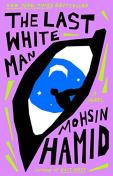
by Mohsin Hamid
Hardcover- $17.34
Click on the ORANGE Amazon Button for Book Description & Pricing Info
Overall rating:
How would you rate this book?
Member ratings
The Last White Man, Mohsin Hamid, author and narrator
Mohsin Hamid has written a short novel about race and its place in our world. When Anders wakes up one morning to what he, at first, perceives is a nightmare, he soon realizes that although he went to sleep as a white man, he has now awakened as a man of color. He is now forced to live in a different reality. His comfort zone of whiteness is gone. What problems will he endure? Will he be able to have the same lifestyle? Has he changed in any other way? Soon he will discover subtle changes in his personality, but at first, he calls in sick to his job as a trainer and finds he is afraid to go out. When he does venture out, he wonders if anyone is looking at him in an accusatory manner. It seems he is not recognized in his regular haunts. He discovers that some people no longer seem to notice him. He seems invisible to some people or like a shadow, they try to avoid. He notices people he previously took for granted or ignored. The janitor suddenly looms large on his landscape.
Anders has a girlfriend. At first, Oona, a yoga teacher, is very uncomfortable with Anders and begins to avoid him, but soon, it becomes apparent that this change of color in white people is something of a pandemic and is spreading. An entire town is suffering from the same change in skin color. Oona begins to grow more and more accustomed to Anders as a changed man. She sees him as more relaxed, and she too grows more relaxed. They both grow calmer and more accepting of each other, of their family and even of strangers. Soon, she too, is living in a dark-skinned body. She and Anders grow closer and more compatible. They seem to be less threatened and more accepting of each other as more and more people turn dark skinned. They discover that they often treated people without respect before this change. They discover that they are a bit wiser and enjoy each other and their lives far more as they live in these new bodies.
At first, there is some fear and some violence, all around them. There are attacks against those who have darkened, but soon everything calms down and a kind of peace descends. With everyone of one color, everyone is getting along far better. Life seems enjoyable as they take time to enjoy each other’s company without judgment. Without whiteness and its attendant privileges, there are fewer disagreements, fewer moments of self-righteous indignation. Previously, one group of people, those with white skin, thought they had the one right way. Did they? Was the color simply a superficial descriptor?
Is life better now or was it better before, and if it was better, was it better because of whiteness or because of the privileges and power whiteness bestowed? If it is better without whiteness, is it because people feel less threatened? Do people become aware of the way one group took advantage of another? When everyone is the same, do they discover the true value of each other?
Let’s suppose that the tables were turned and reverse the situation. What if everyone turned white? Would we get the same result? Would there be less stress or more stress with the added competition? Would we all simply begin to have the same perceived privileges or had we really all had the same privileges all along, if only all we had all made the same effort to access them? Under which scenario would the world advance more and achieve more? Would both scenarios produce the same result? Is homogeneity better than heterogeneity? Is race the only issue that causes disharmony? What about economic advantages? What about intellectual advantages? They are not necessarily the result of race, but rather of ambition and ability, regardless of race.
When one group thinks they have the one right way and demand unanimity and uniformity, is that a successful approach for a community? Are different opinions necessary for creativity and advancement? Can a society survive if one political party silences the other? Does this novel support group think? Which scenario would achieve more unity, changing everyone to white or to black or does the choice of color matter? Is uniformity demanded in all situations for success, or is it an invitation to failure due to a lack of stimulation?
The author’s writing style wastes no words. In brief, but very clear and lucid sentences, he drives his point home about discrimination and the foolishness it is based upon.
Book Club HQ to over 90,000+ book clubs and ready to welcome yours.
Get free weekly updates on top club picks, book giveaways, author events and more








